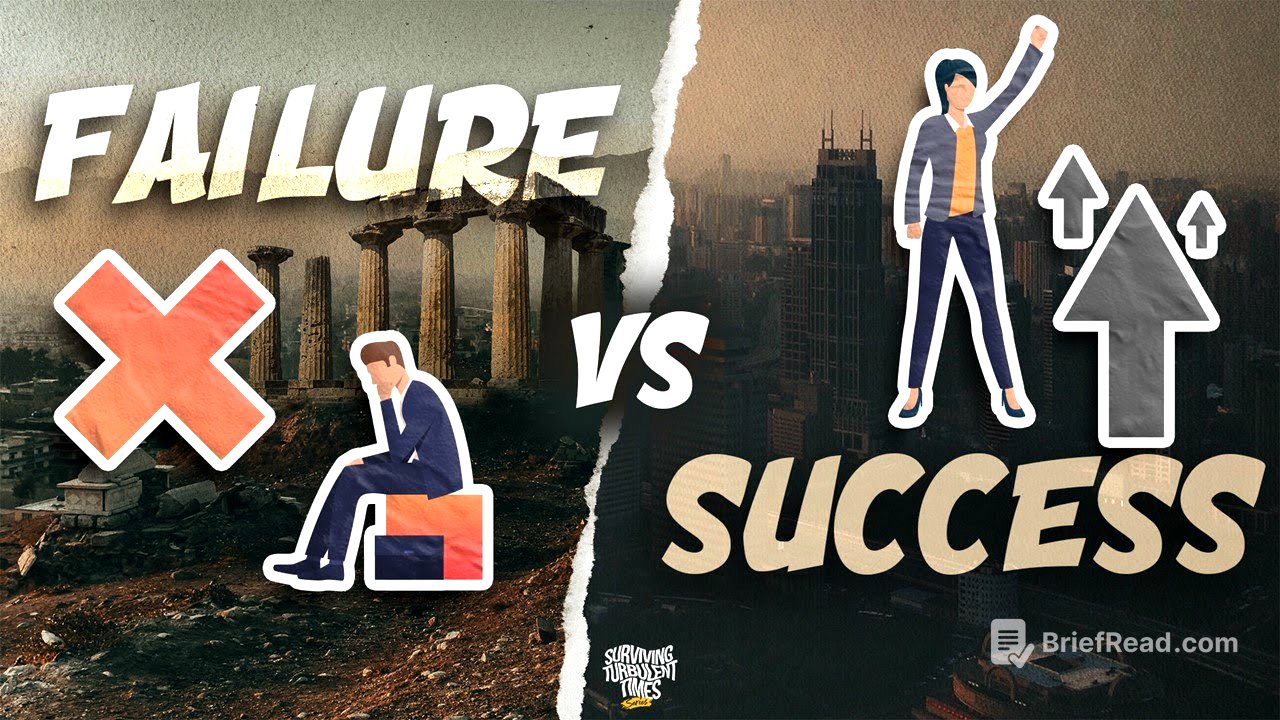TLDR;
This sermon explores the relationship between failure and success, emphasizing that failure is a common and important part of life. It challenges the perception of failure as a finality, offering seven perspectives to redefine it as a stepping stone to success. The sermon encourages embracing failure, learning from mistakes, and maintaining a broader perspective to achieve ultimate desires and God's purpose.
- Failure is not avoidable, it's a part of being human.
- Failure is a process, not an event.
- Failure is subjective, not objective.
- Failure is not the enemy of success, but a fertilizer.
- Failure is not irreversible.
- Failure is not a stigma.
- Failure is not final.
Introduction: Embracing Turbulence and Redefining Failure [0:12]
The sermon addresses the fear of failure during turbulent times, drawing a parallel to the disciples' fear of capsizing. Many people are prisoners of failure, afraid to project their true selves and stuck in bad situations due to this fear. The message aims to change this perspective, encouraging listeners to embrace failure as a necessary part of their journey. Turbulence is equated with conflict and trouble, which are common experiences in life, as highlighted in the Book of Job.
Biblical Examples of Success Through Failure [4:22]
God often uses individuals who seem to be failures. Moses, in Exodus, initially felt inadequate to deliver the Israelites and faced accusations from them, making his mission appear to fail. Similarly, Peter denied Jesus three times and felt like a failure, but Jesus later chose him to lead the church. These examples illustrate that apparent failure does not necessarily mean abandonment by God or the end of one's purpose.
Redefining Failure: Perspective and Perseverance [11:36]
Drawing on quotes from J.M. Barry and Nelson Boswell, the sermon emphasizes that everyone, even the best, experiences failure. The key difference between greatness and mediocrity lies in how one views mistakes. People often judge isolated situations too quickly and label them as failures, instead of keeping the bigger picture in mind. Changing one's perspective on failure is crucial for perseverance and achieving desires.
Seven Things Failure Is Not: #1 Avoidable, #2 An Event [14:35]
The sermon outlines seven perspectives to redefine failure:
- Failure is not avoidable: Everyone makes mistakes, and it is part of being human. Quick rules for being human include learning lessons from mistakes, understanding that lessons repeat until learned, and recognizing that pain is a way God gets attention.
- Failure is not an event: It is a process, not a destination. One cannot conclude they have failed until their last breath. Success is also a process, and both go hand in hand.
Seven Things Failure Is Not: #3 Objective, #4 The Enemy [36:36]
Continuing the list of what failure is not:
- Failure is not objective: It is subjective, determined by one's perception and response to mistakes, not by others' opinions.
- Failure is not the enemy: It is a fertilizer on the road to success. Adversity is necessary to create success, as seen in David's triumph over Goliath. Those who see failure as the enemy become captives of those who conquer it.
Seven Things Failure Is Not: #5 Irreversible [51:51]
- Failure is not irreversible: It can be reversed. Peter's denial of Jesus was forgiven, and he was restored. A Texas proverb illustrates that spilling milk is not the end as long as you don't lose the cow. Don't give up because of a spilling of milk, as long as the cow is alive, you can build it again.
Seven Things Failure Is Not: #6 A Stigma, #7 Final [1:01:31]
Concluding the list of what failure is not:
- Failure is not a stigma: Each failure should be a step to success, not a source of shame.
- Failure is not final: Biblical figures like Moses, Peter, Abraham, and David all experienced failures but still achieved greatness. Paul, once a murderer, became a great apostle.
The Cycle of Success Through Failure [1:06:11]
The process of success involves testing, failing, learning, improving, and re-entering. This cycle is continuous, with each completed cycle leading to a higher level. The sermon encourages listeners to embrace this cycle, not to remain stuck at the failure level, and to make failure their friend.
Personal Reflection and Call to Action [1:10:52]
The sermon concludes with a call to reflect on what Jesus is saying and to take steps to achieve success through failure. It includes a prayer for those stuck due to past failures and an opportunity for listeners to give their lives to Jesus, emphasizing that He is the answer to overcoming failure and achieving true success.









